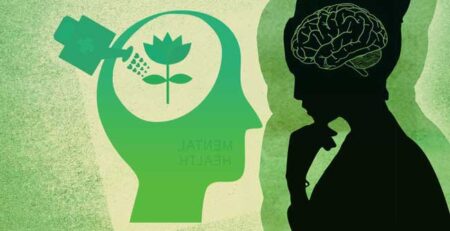What is counseling and psychotherapy?
As a counseling center, Moner-Sthapati can offer both counseling and psychotherapy services to help individuals manage their mental health issues. We strive to provide a supportive and safe environment where individuals can discuss their problems and concerns with our trained professionals.
For individuals with mild to moderate mental health issues, our counseling services can be a suitable treatment option. We aim to offer support, guidance, and education on how to manage mental health issues effectively. We also provide group counseling sessions where individuals can connect with others who may be going through similar experiences.
For individuals with more severe mental health issues, our psychotherapy services can be an effective treatment option. Our psychotherapists can help individuals identify and address the underlying causes of their mental health issues. We use a range of therapeutic techniques to help clients gain a deeper understanding of their thoughts, feelings, and behaviors. Our ultimate goal is to empower individuals to manage their mental health effectively and lead a more fulfilling life.
In this article, we will explore counseling and psychotherapy in more detail, including their goals, techniques, and benefits. We will also discuss how counseling and psychotherapy differ from each other, and what to expect from a counseling or psychotherapy session.
What is Counseling?
Counseling is a form of mental health treatment that focuses on providing support, guidance, and education to individuals dealing with emotional and psychological problems. The primary goal of counseling is to help individuals manage their issues effectively and improve their mental health.
Counselors use a range of therapeutic techniques to help individuals address their mental health concerns. One of the most common techniques used in counseling is cognitive-behavioral therapy (CBT), which focuses on identifying and changing negative thoughts and behaviors. CBT can be helpful in treating a range of mental health issues, including anxiety, depression, and post-traumatic stress disorder (PTSD).
Counseling sessions are typically conducted in a one-on-one setting, although group counseling may also be available. The length and frequency of counseling sessions vary depending on the client’s needs and the severity of their issues. Counseling is often a short-term treatment that may last a few weeks to several months.
At Moner-Sthapati, we offer counseling services to help individuals manage their mental health concerns. Our counselors are trained professionals who use evidence-based techniques to help individuals address their issues effectively. We strive to create a safe and supportive environment where individuals can discuss their concerns and receive the guidance and support they need.
What is Psychotherapy?
Psychotherapy is a form of mental health treatment that focuses on identifying and addressing the underlying causes of mental health issues. The primary goal of psychotherapy is to help individuals gain a deeper understanding of their thoughts, feelings, and behaviors, and develop effective coping strategies.
Psychotherapists use a range of therapeutic techniques to help individuals address their mental health concerns. One of the most common techniques used in psychotherapy is psychoanalysis, which explores the unconscious mind and how it influences behavior. Psychotherapy can be helpful in treating a range of mental health issues, including depression, anxiety, and personality disorders.
Psychotherapy sessions are typically conducted in a one-on-one setting, although group therapy may also be available. The length and frequency of psychotherapy sessions vary depending on the client’s needs and the severity of their issues. Psychotherapy is often a long-term treatment that may last several months to several years.
At Moner-Sthapati, we offer psychotherapy services to help individuals address the underlying causes of their mental health issues. Our psychotherapists are trained professionals who use evidence-based techniques to help individuals gain a deeper understanding of their thoughts, feelings, and behaviors. We strive to create a safe and supportive environment where individuals can explore their concerns and develop effective coping strategies.
How Counseling and Psychotherapy Differ?
Counseling and psychotherapy are two distinct but related approaches to mental health treatment. Both of these therapeutic methods aim to help people improve their mental and emotional wellbeing, but there are differences in their approach, goals, and techniques.
Counseling typically involves a shorter-term, goal-oriented approach to help individuals cope with specific issues, such as relationship problems, stress, grief, or career transitions. Counseling sessions usually last between 6-12 sessions, with the goal of helping clients develop practical strategies and skills to address their immediate concerns. Counseling may also include support and guidance to help individuals manage their emotions, develop coping mechanisms, and improve communication and problem-solving skills.
Psychotherapy, on the other hand, tends to be a longer-term process that involves a deeper exploration of a person’s emotions, beliefs, and behaviors. Psychotherapy aims to help people gain a better understanding of their underlying issues, patterns of behavior, and how their past experiences may be influencing their present. The goal of psychotherapy is to help clients achieve personal growth and transformation by working through unresolved emotional conflicts, negative self-perceptions, and deep-seated psychological issues.
One of the main differences between counseling and psychotherapy is their focus. Counseling tends to focus on specific issues or problems, while psychotherapy focuses on overall personality development and self-awareness. While counseling may involve teaching clients specific techniques or strategies to manage their symptoms, psychotherapy often seeks to help clients change deep-seated patterns of behavior and thought.
Another key difference between counseling and psychotherapy is the role of the therapist. In counseling, the therapist often serves as a coach or mentor, providing support and guidance to help clients achieve their goals. In psychotherapy, the therapist takes on a more active role, helping clients explore their emotions, beliefs, and past experiences in a non-judgmental and empathetic way.
The techniques used in counseling and psychotherapy also differ. Counseling often involves teaching clients specific techniques or coping skills to manage their symptoms, such as mindfulness meditation, cognitive-behavioral therapy, or problem-solving skills. Psychotherapy, on the other hand, may involve a range of techniques, including talk therapy, dream analysis, hypnosis, and other forms of expressive therapy.
Another significant difference between counseling and psychotherapy is the types of issues they address. Counseling typically focuses on specific issues, such as career transitions, grief, or relationship problems. Psychotherapy, on the other hand, can address a broad range of issues, including depression, anxiety, trauma, addiction, and personality disorders.
The length of treatment also differs between counseling and psychotherapy. Counseling sessions usually last between 6-12 sessions, with the goal of addressing immediate concerns and providing practical strategies for coping. Psychotherapy sessions can last for several months or even years, depending on the depth of the issues being addressed.
In summary, while counseling and psychotherapy share many similarities, there are also significant differences between the two approaches. Counseling is typically a shorter-term, goal-oriented approach that focuses on specific issues and practical strategies for coping. Psychotherapy, on the other hand, is a longer-term process that seeks to address deep-seated psychological issues and promote personal growth and transformation. Both counseling and psychotherapy can be effective in helping people improve their mental and emotional wellbeing, and the choice of which approach to use depends on the individual’s unique needs and goals.





Leave a Reply